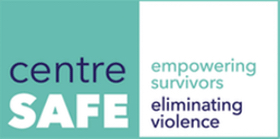Some of the obvious signs of domestic abuse can raise immediate warning signals in the people around the woman (usually), or the man suffering them. You may think it makes it easy to identify, but that’s not always the case.
Whether you are looking at someone you think is in an abusive relationship, or you think you are in one yourself, there are several key signals to look out for potential problems, or that you are ignoring or covering up sexual abuse.
What I’m going to do here is talk you through the top warning signs, both physical and emotional.
We will also cover some of the confusion that people can have which leads to accusations that aren’t actually true I’ll also cover the fashionable new buzz term “gaslighting” and explain exactly what it is, and what it isn’t.
Physical Signs Of Potential Physical Abuse
Not all abuse is physical. However, there are usually physical signs that physical coercion and aggression is part of the tactics being used. Sometimes physical abuse is calculated, while other times it is pure lashing out and aggression. Sometimes it’s a combination of both.
There are a ton of physical signs, consistent with being pushed over, being punched, choked, being hit with things, or other signs of physical abuse/torture. The most obvious ones will be facial features ones, then the arms and legs, and then the torso. Also, marks around the neck can be a signal as well.
If you notice a friend covering themselves up when they did previously, especially in inappropriate circumstances then it can be a signal.
Likewise, if somebody used the go swimming, or to the beach, and is now not doing that, always wearing unusual clothing, then it could all be assigned.
However, also be aware that there are physical signs that are not abusive. It could be consensual sexual play, it could merely be accidents, or even an underlying health condition causing bruising that they just don’t want to talk about.
Emotional Signs Of Potential Abuse
Emotional signs of physical abuse are far more difficult to spot, and far more subjective.
Often, they can just be a signal that something else is going on. They could just be general unhappiness with the relationship, or it could be something like depression that is completely unrelated.
That’s why confronting someone about what you see as signs of emotional abuse can be so much more challenging unless you directly see them for yourself.
Some of the key signals of emotional abuse that could point towards this happening are:
- Agitation and anxiety
- Developing drug or alcohol problems
- Change in sleep patterns
- Loss of interest in daily activities
- Fearful outlook
- Depression
- Look of fear when someone is angry
- Suicidal thoughts and comments
- Low self-esteem
- Fear of partner
- Not wanting to talk about partner
- Constantly defending partner
These can be your own signals, or you can spot them and someone else. But again, every single one of these can be due to another reason, you have to look at a bigger trend to see if someone could be in danger.
If this is you reading and trying to work out if you have symptoms of emotional abuse, and usually deep down you do know. If you look at that list and see many things on there and the root cause is the partner, then you know the truth.
Gaslighting: What It Is & What It Isn’t
Gaslighting is a phrase which is thrown around more and more nowadays. In extreme circumstances, simply disagreeing with someone’s recollection gets you accused of gaslighting.
The truth is that most people have very limited recollection skills. Studies have shown that people’s recollection of events can be hugely different. One person is adamant someone was wearing a certain color, and someone else states a completely different color.
The second thing to understand is that anxiety and previous bad experiences can cause you to project this onto a partner with no evidence at all.
The third problem is that drugs and alcohol can affect how people recollect things and this increases the severity of the differences in the realities perceived.
To be clear, gaslighting is a consistent, orchestrated, campaign to make you lose your mind. A person will deliberately move things, lie, and state that black is white to make you uncertain and back down.
It’s a control mechanism designed to break the person down and get them to not believe their own thoughts, and to completely rely on the person conducting the campaign. It’s psychological abuse in order to condition for complete control.
Forgetting where you put your car keys is something we all do. But if you have got it into your head that your partner is gaslighting you, then finding them where you didn’t expect them immediately makes you think that they moved them deliberately to mess with your head. But nine times out of 10, you simply forgot.
So don’t fall for the modern trend of attacking anyone or whose perception is different to yours. You have to look at the long-term trend of the person in relation to you, and you have to take into account your own biases, past experiences, and mental health.
Gaslighting is something incredibly difficult to prove. However, by understanding what it really is and taking a step back you can spot the long-term trend confirmed yourself if it’s happening, or whether there is something else going on.
Behavioral Changes That Can Occur With Domestic Abuse
Behavioral changes are actually the biggest sign that something is going on. Both with yourself, or someone you know, it’s the behavior changes that are often most noticeable and the biggest red flag.
For example, someone who was previously outgoing and happy and suddenly becomes withdrawn, especially a few months into a new relationship, could be suffering from abuse.
But it might not be that. It could be another health concern, money worries, depression, literally a myriad of other things changing them. Generally, though, you’re looking for several notable behavioral changes. It’s not about someone happy becoming miserable, it’s about big swings in usual and established behavior patterns.
This can be isolating where previously they were outgoing. But on the other side of that coin it can be someone who is usually reserved demanding to go out and then getting very drunk and angry.
So it’s not necessarily about what you would assume, withdrawing, cutting off, going quiet. It is about a big swing in established, normal behavior, into abnormal behavior.
What Controlling Behavior Looks Like & What It’s Not
It’s very easy to assume controlling behavior, and often that is the case. But you should remember that every relationship is different and not judged by your standards, or the cookie-cutter standards of newspapers or advice columnists.
Someone could be completely happy in that style of relationship and be thriving on it, even though you feel it’s unhealthy.
So controlling behavior is not always black and white. However, if someone is referring to the partner as moody, or having a temper, and their previously established behavior patterns are dramatically different, then it is a big red flag.
Physical violence signs, emotional abuse of signs, limiting on socializing, control over all aspects of life, questioning, short temperedness, fear, dramatic swings in previous behaviors, shunning family and friends; you have to put together the big picture if it’s someone you are concerned about.
Should You Step In If You See Any Of The Physical Or Mental Signs?
As you can see, it’s not simple. Although sometimes it is blatantly obvious, and the person may say it to you, or if it’s you, you will know, it’s not always clear-cut.
If you have concerns about someone, you should try and get close and observe. The more information you get, the more you can reach a good conclusion, rather than a knee-jerk one that could be wrong.
For example, many guides say that “excessive privacy” around their partner’s relationship is a warning sign. But think about that, why is it? Many people are very private and don’t talk about themselves.
Also, consider alternative lifestyles. Some people have unusual relationship types that they both thrive in. BDSM-influenced relationships, for example, can look incredibly odd and abusive on the outside but are actually very close and mutually consenting. Just because you don’t understand it, it doesn’t mean it’s abusive.
Consent is crucial, and if somebody understands that and expresses it to you, you must accept their word, whatever your own views.
So you cannot look in isolation, or look at a handful of things. If you spot signs, you need to be educated and spot many of them before you can have the confidence to consider stepping in. Stepping in should also be very gentle. It should be sitting with that person alone and prompting a discussion where they could open up. Give them signals that you are concerned.
Whatever you do, do not go wading in accusing people of abuse, gaslighting, physical violence, demanding that the relationship breaks up, and attacking both parties.
If there isn’t any abuse and you have misjudged, then you are causing trauma and being abusive yourself. If there is abuse, it could trigger a circling the wagons that create a shared attack which strengthens resolve and leaving you unable to have access at all.




